
GREETINGS
Welcome To E-jloula Online Teaching Resources
Discovering Aïn Djeloula: A Journey Through Time
Nestled in central Tunisia, approximately 30 kilometers west of Kairouan, lies the town of Aïn Djeloula. Known in antiquity as Cululis, this locale boasts a rich tapestry of history, from prehistoric settlements to Roman prosperity and beyond.
Prehistoric Roots
The region surrounding Aïn Djeloula is replete with caves that have yielded prehistoric artifacts, including rock paintings. These findings attest to early human habitation and artistic expression in the area .
Roman and Byzantine Influence
During the Roman era, the town flourished under the name Cululis, later recognized as Municipium Chlulitanum. Strategically positioned below the Djebel Ousselat mountain range, it controlled vital routes toward Bône (modern-day Annaba) and the fertile surrounding lands. Remnants of a Byzantine fortification still stand, underscoring its historical military significance
Islamic Conquest
Historical accounts note that in 666 AD, during the Islamic expansion into North Africa, the Umayyad Caliph Abd al-Malik captured Aïn Djeloula. The conquest led to the town being plundered and its inhabitants enslaved .
Medieval Descriptions
The 11th-century geographer Al-Bakri described Aïn Djeloula as an ancient city constructed from stone blocks, fortified by a castle, and surrounded by forests and orchards. At its center, a spring of fresh water emerged, giving the town its name ("Aïn" meaning "spring" in Arabic). Nearby, the site known as Henchir Sardiana housed Roman-era ruins, including baths and cisterns adorned with marble, indicating a place of leisure and luxury
Ainjloula : the city of Cululis , a lost tourist pole
Once known as Cululis during Roman times, Aïn Jloula is a place where layers of history blend with cultural richness and untapped tourism potential. Despite its deep historical roots and breathtaking natural landscapes nestled near Jebel Ousselat, the city remains an underappreciated destination. In recent years, efforts have been made to revive this hidden gem, especially through culturally vibrant events like the International Mountain Olive Festival. Held annually in Aïn Jloula and Oueslatia, this festival honors the ancestral legacy of olive cultivation, blending agricultural, ecological, and cultural development. Organized by the Jebel Ousselat Association for Heritage and Development, in partnership with local municipalities and government bodies, the festival features traditional crafts, equestrian shows, tourism promotions, and the symbolic planting of over 8,000 olive trees to breathe life back into the mountain. Alongside this, the Bee Festival, held every February, celebrates local beekeeping traditions and sustainable agriculture. Aïn Jloula also hosts a Local Cultural Festival, offering a week-long blend of entertainment, heritage displays, and community celebration. These initiatives highlight the region's rich intangible heritage, and yet, the city’s full potential as a cultural and eco-tourism hub remains largely unexplored.
Pictures from Aïn Jloula

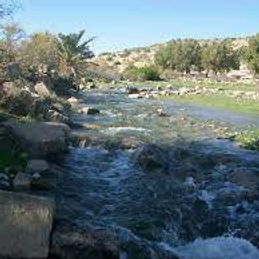
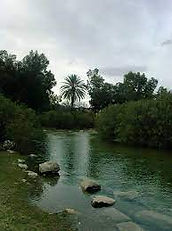


what you may not know
The city of Ain Jaloula is ancient in history and has known all the Punic, Roman, Byzantine and Islamic periods, and its historical significance is highlighted by the ancient city of military nature. It is characterized by its military character, characterized by its wall, which is built with huge stones, its geographical extension that occupies about 40 hectares, and its three graves, which are Roman and Byzantine in character. Perhaps these features show what this city occupied during the pre-Fatouh era Islamic T.
The city of Ain Jaloula was mentioned in many historical sources, especially books by travelers and dictionaries, where they were subjected to in a succinct manner, such as Abu Ubaid al-Bakri and Yaqout al-Hamri.



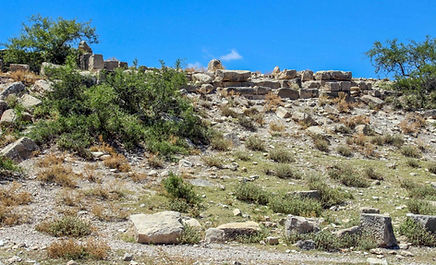
Festivals in Ainjloula
1)The local cultural festival
is a festival that takes place annually in Ainjloula . İt lasts from three days to one week . :İt includes cultural and tourism activitıes and display of the traditional crafts. This event aıms to give an integrated entertainment for visitors and the villagers as well .
2) The international Mountain Olive festival :
An annual festival in Ainjloula and Ousseltia . It aims at reviving the tangible and untangible heritage of the ancestors in cultivation of olives , around which the dimensions of agricultural, ecological and cultural development are centered in the will to act away from the ruins of the past . This initiative was organized by the Jebel Weslat Assosiation For Heritage and Development in partnership with the municipalities of ainjloula and Waslatiya , the regional authorities and tourism , cultural and agricultural departments. This festival offers a rich program and a variety of activities such as cultural shows and promotions for traditional industries , in addition to tourism and equestrian shows that carry the cultural heritage . Nearly 8000 new olive trees were planted to rebuild the mountain .
The first edition of the International Jebel Oueslat Festival for Culture and Alternative Tourism concluded today, Sunday, April 6, 2025, in the delegation of Ain Jloula.
Organized over three days, this inaugural edition offered a rich program of entertainment, leisure activities, and tourist discoveries.
The aim of this event is to promote the various historical sites of the Ain Jloula and El Oueslatia delegations through camping activities and various adventures in the heart of nature.
The festival featured discovery visits and excursions to several historical sites and caves in the region, along with artistic performances, notably traditional folkloric shows, and an exhibition dedicated to local terroir products.
3)The bee festival
İs held annually at the begining of february .İt celebrates the bee and the beekeepers locally .
Beekeeping in Ain Jloula, a rural region nestled in the heart of Kairouan, Tunisia, has become a growing activity that reflects both tradition and environmental awareness. Thanks to its diverse wild flora and favorable Mediterranean climate, Ain Jloula offers an ideal setting for sustainable apiculture. Local beekeepers, often working in small family-run operations, produce high-quality honey known for its purity and aromatic richness, especially from thyme, rosemary, and wildflowers. Beyond its economic value, beekeeping here supports biodiversity and plays a vital role in pollination and the preservation of local ecosystems. As interest in eco-friendly and nature-based livelihoods grows, beekeeping in Ain Jloula is gaining recognition as both a source of income and a tool for rural development.
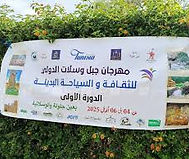
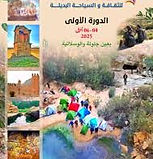



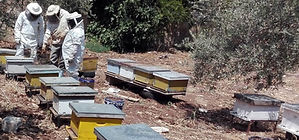

.png)